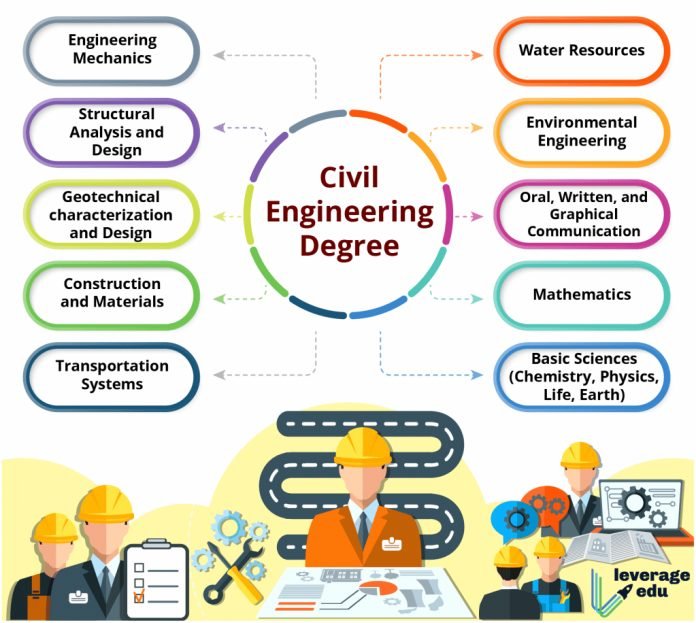Last Updated on August 7, 2022 by
Engineers are involved in a variety of processes. They don’t have a certain area of expertise but how many department in civil engineering exist in total? The results of their meticulous investigation and design may be found all over the place. We may struggle to live comfortably if we do not have professional engineers. Civil engineering is an engineering discipline that focuses on the physical environment. Designing, maintaining, analysing, and developing the physical environment are all part of it. Roads, dams, bridges, caves, canals, apartments, hyperloop structures, railway bridges, tunnels, and pipelines are all examples of the physical surroundings. Other types of civil engineering exist as well. You can select the appropriate field based on your interests.
Table of Contents
Various departments in civil engineering
Civil engineers assist people in resolving various environmental concerns that have arisen as a result of humanity’s actions. Geotechnical Engineering, planning, and material transportation are critical to lowering pollution levels and ensuring our survival. We have already exploited our world in a variety of ways. It is now hazardous to survive in the world without the assistance of notable civil engineers. Likewise, people also search how to get a job for electrical engineering to create a better world.
Structural Engineering
It is a branch of civil engineering that is concerned with the analysis and design of physical infrastructures such as roads, overpasses, complicated platforms for railway lines, and coastal constructions such as oilfields in the sea, among other things. A civil engineer must establish measurements and estimates about the tensions and forces that the structures will face over their lifetimes, their future consequences, and how they can be safe for long-term usage when studying and constructing components of engineering structures.
Transportation Engineering
Transportation engineering is related to the development of transportation systems that are both efficient and long-lasting. It is possible for the transportation system to be public or private. Air transportation, tunnels, overpasses, trains, transportation buildings etc are included. The transportation system, surface engineering, and infrastructure management are all part of it.
Construction and management Engineering
Construction engineering encompasses the construction of structures as well as the administration of all duties associated with construction engineering. Since civil engineers take on large contracts that might result in both benefits and losses on the extreme end, this field has a higher level of business risk than other fields. It is a field that also includes the management of transporting items from one location to another.
Environment Engineering
If you are still thinking about how many department in civil engineering exist there is a branch called environmental engineering. Environmental engineering aids in protecting humans from negative environmental effects such as pollution and global warming. Environmental engineers work on waste disposal, regeneration, water pollution control, air pollution control, and public health. Environmental engineering has existed since the need for environmental preservation became apparent. Living circumstances cannot improve if the air, water, and soil are polluted.
Earthquake Engineering
Earthquake Engineering, a sub-discipline of Civil Engineering, has a significant effect on people and property. It can be used to reduce the likelihood of seismic damage. The fundamental goal of earthquake engineering is to remember the construction codes and apply them to the structures in order to reduce damage threats.
Read More: Advanced Traffic Management Systems



























